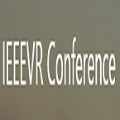VR devices have recently been actively promoted as tools for knowledge workers and prior work has demonstrated that VR can support some knowledge worker tasks. However, only a few studies have explored the effects of prolonged use of VR such as a study observing 16 participant working in VR and a physical environment for one work-week each and reporting mainly on subjective feedback. As a nuanced understanding of participants' behavior in VR and how it evolves over time is still missing, we report on the results from an analysis of 559 hours of video material obtained in this prior study. Among other findings, we report that (1) the frequency of actions related to adjusting the headset reduced by 46% and the frequency of actions related to supporting the headset reduced by 42% over the five days; (2) the HMD was removed 31% less frequently over the five days but for 41% longer periods; (3) wearing an HMD is disruptive to normal patterns of eating and drinking, but not to social interactions, such as talking. The combined findings in this work demonstrate the value of long-term studies of deployed VR systems and can be used to inform the design of better, more ergonomic VR systems as tools for knowledge workers.
翻译:暂无翻译




